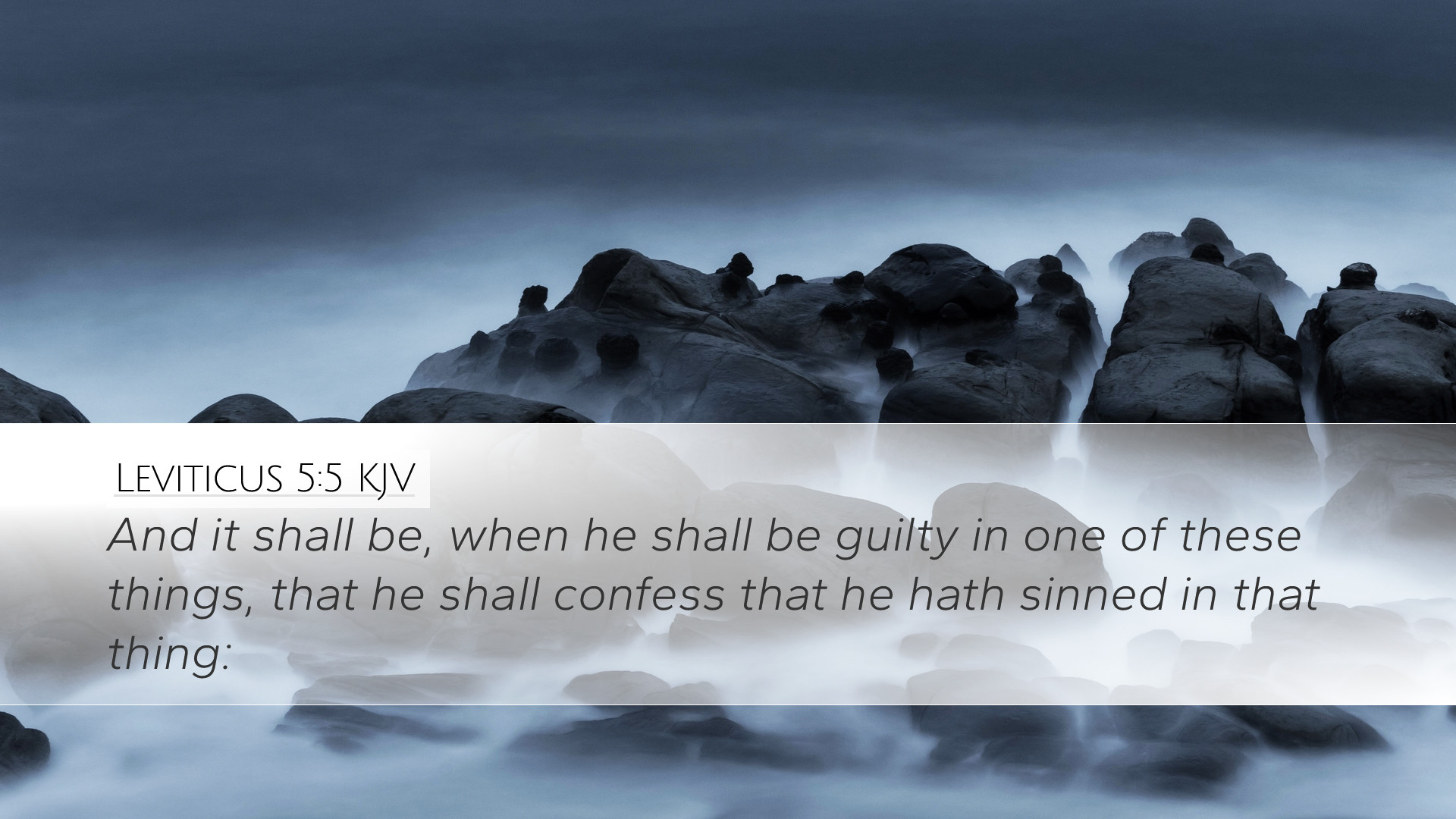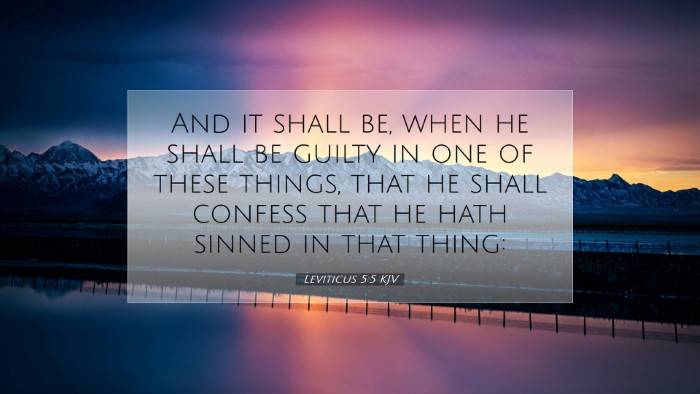Commentary on Leviticus 5:5
Verse Under Consideration: "And it shall be, when he shall be guilty in one of these things, that he shall confess that he hath sinned in that thing." - Leviticus 5:5
Introduction: The book of Leviticus is often viewed as containing laws meant specifically for Israel's ritual and moral practices. In Leviticus 5:5, we find a significant principle regarding the confession of sin, which is essential for understanding both the nature of sin and the requirements for forgiveness within the community of faith. This commentary aims to explore the implications of this verse using insights from various public domain commentaries.
Understanding Guilt and Sin
According to Matthew Henry, the term "guilty" indicates not only a legal standing but also a moral and spiritual condition. It highlights the seriousness with which God views sin. Henry states that sin creates a debt that must be acknowledged and repented of. This verse implies that individuals must first recognize their guilt in the eyes of God before making a sacrifice and ultimately receiving atonement.
Albert Barnes elaborates on the necessity of confession as a preliminary action before any sacrificial act. He notes that an acknowledgment of guilt is essential in restoring the relationship between man and God. Confession serves as an act of humility and recognition of one's fallen nature, which aligns with New Testament principles of repentance.
The Role of Confession
The verse states unequivocally that one shall confess one's sin before God. Adam Clarke emphasizes the importance of this confession. He notes that God requires sincerity and contrition from the sinner, suggesting that simply bringing a sacrifice without true repentance is insufficient. Clarke indicates that confession is an expression of a repentant heart and an acknowledgment of the need for divine mercy.
Significance of Confession in Biblical Context
Confession, as highlighted in this verse, is not merely a formality but a significant step towards reconciliation with God. Matthew Henry further points out that the act of confessing is also a means through which one demonstrates one’s understanding of the severity of sin. This confession brings about a greater awareness of how sin affects not only the individual but also the community of believers.
According to Albert Barnes, there’s an implicit link between confession and justice. He argues that acknowledging wrongdoing is fundamental to maintaining social and religious order within the Israelite community. Confession acts as a reminder of personal responsibility and the need for genuine accountability among the people of God.
Application in Modern Context
Confession in the Church Today: While the sacrificial system as outlined in Leviticus is no longer in practice, the principles of confession and contrition remain relevant. Many pastors and theologians argue that the spiritual act of confessing our sins fosters a deeper communion with God and among fellow believers. Adam Clarke encourages modern readers to engage in regular self-examination to maintain integrity in their covenantal relationship with God.
Conclusion
In conclusion, Leviticus 5:5 offers profound insights into the nature of sin and God's call for confession. Through the combined thoughts of Matthew Henry, Albert Barnes, and Adam Clarke, we better understand that acknowledging our sins is vital for spiritual health and community integrity. The act of confessing prompts us to realize our need for grace, thus leading us back into fellowship with God.
Reflective Questions:
- How does the concept of confession affect your relationship with God?
- What steps can you take to encourage a culture of confession within your church community?
- In what ways can understanding the historical context of Leviticus inform your practice of faith today?


